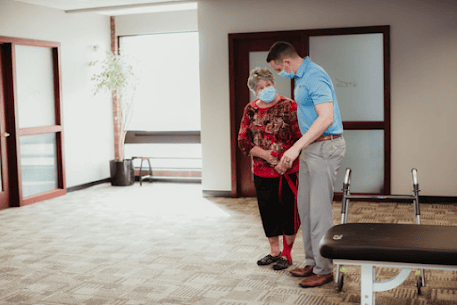Occupational Therapy in Lymphedema Management

Lymphedema is a chronic condition characterized by the accumulation of lymphatic fluid, leading to swelling in various parts of the body. While there is no cure for lymphedema, effective management strategies are essential for individuals to lead fulfilling lives. Occupational therapy plays a crucial role in this process, offering comprehensive support and empowering individuals with lymphedema to optimize their functionality, independence, and overall quality of life.
Understanding Lymphedema:
Before delving into the role of occupational therapy in lymphedema management, it’s important to grasp the basics of the condition. Lymphedema can be either primary (congenital) or secondary (caused by surgery, radiation, trauma, or infection). It often affects the extremities but can occur in other areas as well.
The Multifaceted Approach of Occupational Therapy:
Occupational therapy takes a holistic approach to lymphedema management, focusing on improving physical function, addressing psychosocial aspects, and promoting self-care techniques. Let’s explore some key components of the role of occupational therapy in lymphedema management:
- Education and Self-Care Techniques:
Occupational therapists provide vital education on lymphedema, its causes, and its management. They guide individuals in adopting self-care techniques such as proper skin care, compression garment usage, and exercise routines tailored to their specific needs. By empowering individuals with knowledge and skills, occupational therapists promote active self-management and reduce the risk of complications.
- Manual Lymphatic Drainage (MLD) Massage:
MLD is a specialized massage technique performed by occupational therapists to stimulate the lymphatic system, encourage lymph flow, and reduce swelling. With gentle, rhythmic movements, therapists target specific areas of the body, helping to alleviate discomfort and improve overall lymphedema management.
- Therapeutic Exercises:
Occupational therapists prescribe individualized therapeutic exercises to enhance strength, range of motion, and overall functional ability. These exercises focus on improving circulation, reducing swelling, and promoting lymph flow. Additionally, therapists may recommend appropriate aerobic activities to further support overall well-being.
- Adaptive Strategies and Equipment:
Occupational therapists evaluate patients’ daily activities and environments to identify challenges and recommend adaptive strategies or assistive devices. These may include modifications to clothing, home environment, and workstations, ensuring that individuals can engage in their desired activities while managing lymphedema effectively.
- Emotional and Psychosocial Support:
Living with lymphedema can have a significant impact on an individual’s emotional well-being and overall quality of life. Occupational therapists provide emotional support, coping strategies, and guidance to address psychosocial challenges associated with the condition. They help individuals navigate through potential barriers, maintain positive mental health, and foster resilience.
- Collaboration and Care Coordination:
Occupational therapists work collaboratively with other healthcare professionals involved in an individual’s lymphedema management, such as physicians, physical therapists, and lymphedema specialists. This multidisciplinary approach ensures coordinated care, personalized treatment plans, and optimal outcomes for patients.
Occupational therapy plays a vital role in the comprehensive management of lymphedema, providing individuals with the tools and support needed to effectively manage their condition and improve their quality of life. Through education, self-care techniques, therapeutic exercises, adaptive strategies, emotional support, and collaboration with other healthcare professionals, occupational therapists empower individuals with lymphedema to optimize their functionality and independence.
If you or someone you know is living with lymphedema, consider incorporating occupational therapy into the management plan. With the guidance and expertise of occupational therapists, individuals can navigate the challenges of lymphedema more effectively, enhancing their overall well-being and embracing life to the fullest.

